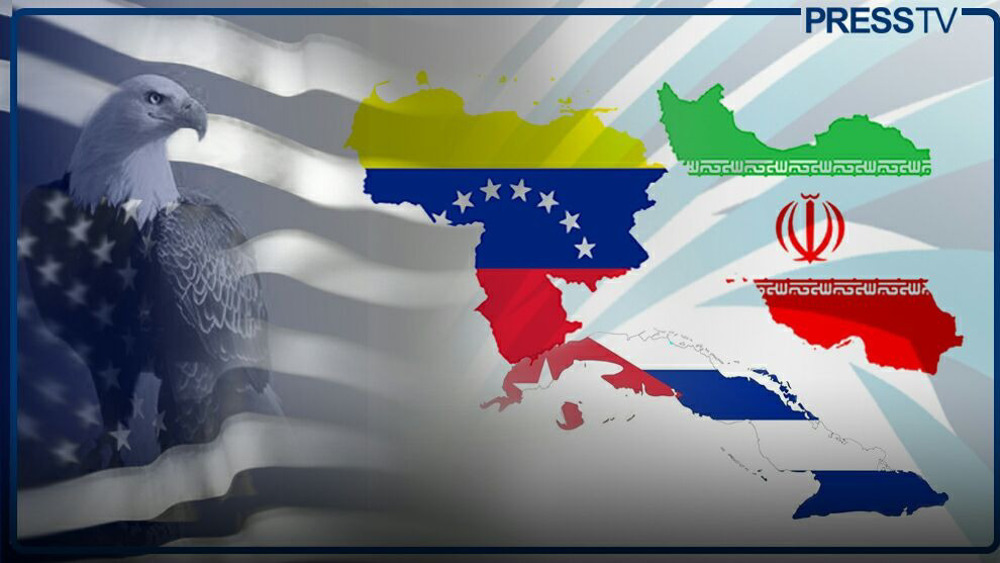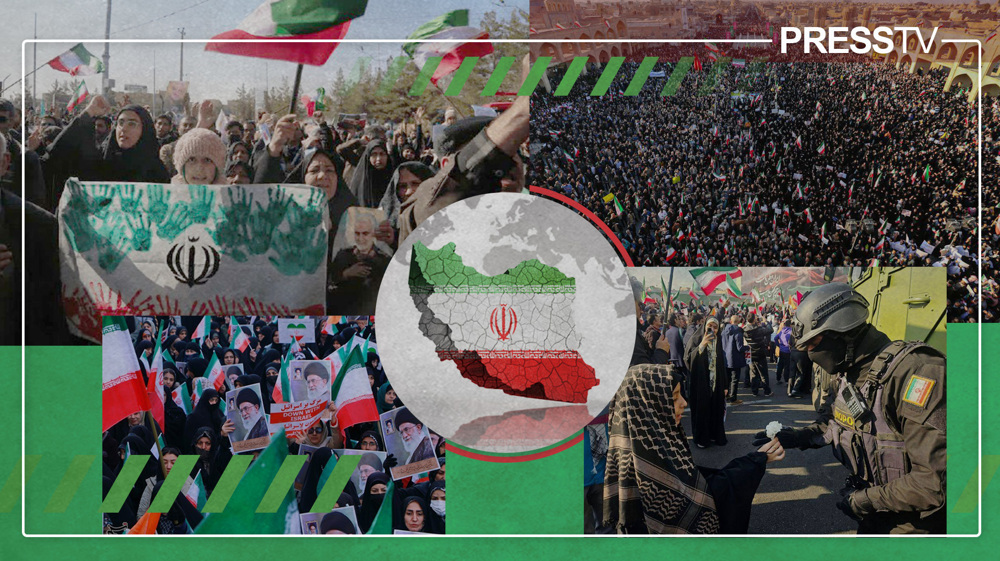Washington rattled at deepening ties between Iran, Cuba, and Venezuela? Good
By John Wight
There is arrogance and there is American arrogance, rooted in a wildly misplaced sense of exceptionalism and ownership of a world which in the third decade of the 21st century, as it emerges from Covid, is aching for liberation from a hegemonic empire responsible for an ocean of suffering and disruption in every part of the world.
No three peoples have suffered the depredations of this empire more than the Iranian, Cuban and Venezuelan people, and no three peoples have been more defiant in resisting its writ and been more united in resistance to its domination.
This is why the current Biden administration’s issuance of a ‘warning’ about Iranian ships heading towards the Western Hemisphere across the Atlantic - carrying weapons, according to US intelligence, destined for delivery to Cuba and Venezuela - will no doubt be treated with the contempt it undeniably deserves.
Rather than the negative development claimed in Washington, in a world bedevilled by religious, cultural and national sectarianism, the growing alliance between Iran, Cuba and Venezuela makes for an inspiring example of international solidarity and fraternity capable of superseding religious, cultural and national differences. It also demonstrates that when a people possesses the determination to uphold their dignity, sovereignty and independence no empire, no matter its size or might, can enslave them.
In the article on the Iranian ships heading west across the Atlantic, a senior Biden administration official is quoted as stating: “The delivery of such weapons would be a provocative act and understood as a threat to our partners in the Western Hemisphere. We would reserve the right to take appropriate measures in coordination with our partners to deter the transit or delivery of such weapons.”
When it comes to ‘provocative acts’ Washington has no rival or peer, while as for ‘partners’ this is a euphemism for satellites, governments that govern not primarily in the interests of their own people but in the interests of the US.
In this regard, take Colombia, Washington’s closest ‘partner’ in Latin America and one of its closest in the entire world. Currently the US has seven military bases in the country, established in 2009 at the behest of the Obama administration to replace previous existing US bases there. Meanwhile, the US State Department boasts on its website that “The United States is Colombia’s largest trade and investment partner, with large investments in the mining and manufacturing sectors. Approximately 450 US businesses have investments in Colombia.”
This is not any kind of partnership any serious person would recognise. It is instead a neo-colonial relationship of domination in which the Colombian government, led currently by President Ivan Duque Marquez, acts as a de facto agent of US economic and strategic interests.
In 1919, Austrian political economist Joseph Schumpeter’s insightful book Imperialism and Social Classes was published to critical acclaim. One passage in the book in particular stands out:
There was no corner of the known world where some interest was not alleged to be in danger or under actual attack. If the interests were not Roman, they were those of Rome's allies; and if Rome had no allies, then allies would be invented. When it was utterly impossible to contrive such an interest—why, then it was the national honor that had been insulted. The fight was always invested with an aura of legality.”
Substitute American for Roman in the above passage and you arrive at the most concise yet thorough analysis of the Roman Empire of our time, centred in Washington. Indeed, the parallels between ancient Rome and contemporary America are chillingly striking on multiple levels.
As with its predecessor, Washington presides over a global empire that is economic, political, and cultural in scope, secured by a military capability that far exceeds its rivals or any potential alliance of its rivals. As in the days when Rome held sway, and people from all over the known world coveted the prize of Roman citizenship, so millions today dream of attaining US citizenship, perceived as the ultimate validation and status. The lure of the American Dream – one of the greatest myths ever perpetuated – has successfully sucked millions of immigrants to the United States from all over the world, helping to fuel its economic might.
The association that once existed between Rome and civilization finds its echo today in the association between America and liberal democracy, considered the unimpeachable barometer of civilization in the 21st century. This despite the fact the enduring power of both was and is secured by the willingness to unleash war on an overwhelming scale.
The countless wars fought by Rome throughout its history is matched in relative terms by the US over the past century. In every region of the world US military might has been deployed in one shape or another, either covertly or overtly, with the aim of maintaining or advancing US geopolitical and economic advantage.
However, and regardless, no matter the power of Rome back then resistance to its writ was constant. And as then so now with Iran’s deepening ties with Cuba and Venezuela in what is tantamount to an anti-imperialist bloc.
Returning to the original POLITICO piece, the authors demonstrate impressive insight in pointing out that “The mere completion of a journey across the Atlantic would be a significant step for Iran’s navy, demonstrating the ships’ capabilities and potentially increasing Tehran’s access to the Western Hemisphere.”
Defiance, said to have been the favorite word of Karl Marx, is a good and wonderful thing.
John Wight is an author and political commentator based in Scotland.
US Justice Department refuses probe into killing of Minneapolis mother
VIDEO | Israel Gaza ceasefire violations
VIDEO | Gaza Solidarity Forum in Damascus calls for boycott of Israel over Gaza genocide
VIDEO | London memorial event highlights Gaza genocide
VIDEO | Press TV's news headlines
VIDEO | Istanbul demonstrators voice support for Iran amid US tensions
VIDEO | Israeli settlers attack Palestinian Bedouin community, injure 13
Palestinian Ambassador’s residence in Tehran attacked amid terror wave










 This makes it easy to access the Press TV website
This makes it easy to access the Press TV website